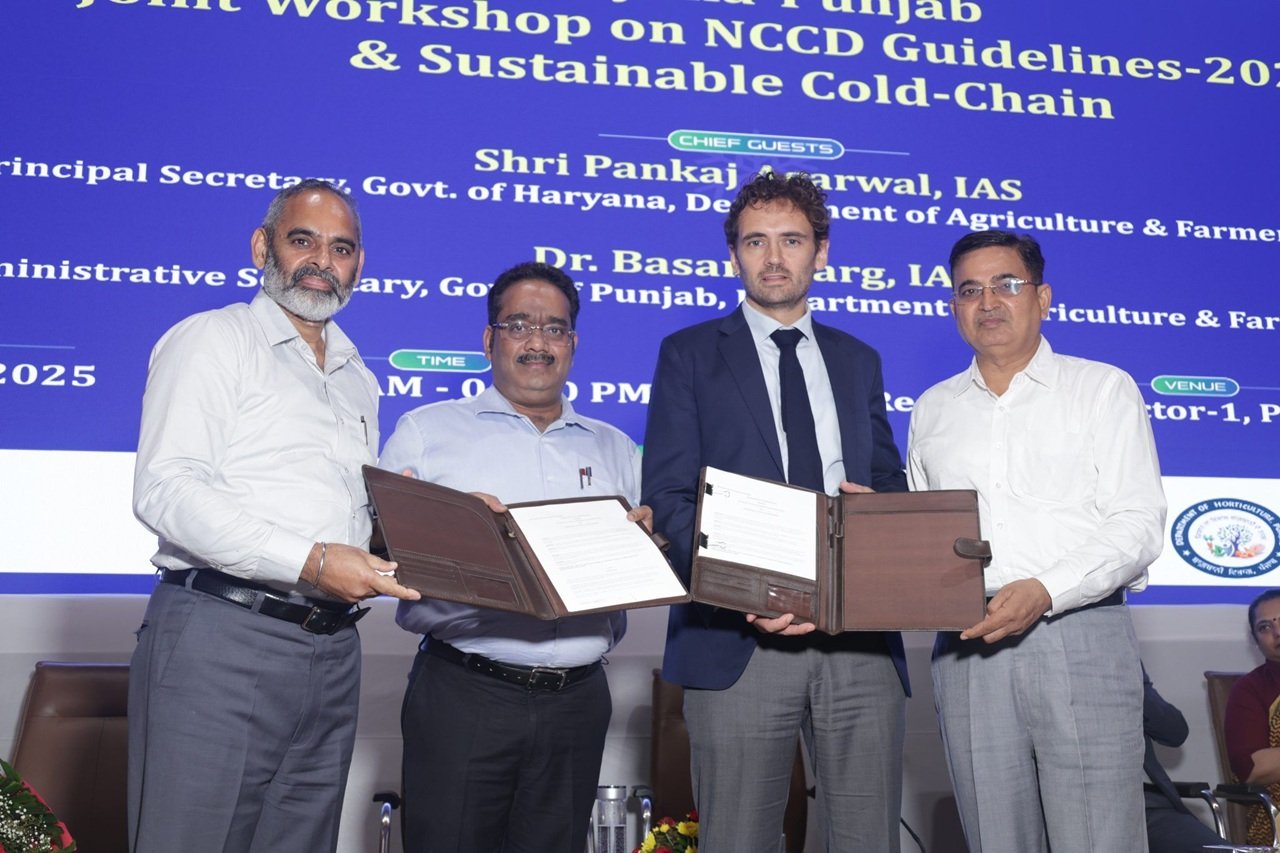The United Nations Environment Programme (UNEP) and the Department of Horticulture, Government of Haryana, have signed a Memorandum of Understanding (MoU) to strengthen sustainable cold chain infrastructure in the state's horticulture sector. The collaboration is part of UNEP’s India Cold Chain Programme and aims to reduce post-harvest losses, improve market access, and support climate-friendly practices in Haryana.
Despite contributing 14.1% to India’s agricultural GDP and producing crops such as potatoes, tomatoes, and citrus fruits, Haryana faces major gaps in integrated cold-chain facilities. Post-harvest losses are estimated at 15% for fruits and 11% for vegetables, largely due to limited packhouses and cooling infrastructure. A 2022 study by the National Centre for Cold-Chain Development (NCCD) identified a need for nearly 1,695 packhouses, while only around 33 existed at the time.
To address this, Haryana has announced plans to invest Rs. 2,700 crore (approx. USD 325 million) to develop over 500 integrated packhouses by 2033, with funding support from the Japan International Cooperation Agency (JICA). The initiative also includes the development of a model Centre of Excellence on Sustainable Crop Post-harvest Management and Cold Chain.
The new MoU with UNEP connects this initiative to the India Cool Coalition Programme and links it with the Haryana-UK Centre of Excellence. The partnership aims to support development of integrated cold chain facilities, promote energy-efficient and renewable energy-based technologies, facilitate financing through government schemes, and enhance capacity building for farmers and businesses.
“There is both an economic and climate cost to inefficient cold chains,” said Balakrishna Pisupati, UNEP India Country Head. “Expanding sustainable cold chains is necessary to meet several Sustainable Development Goals related to poverty reduction, food security, good health, and climate action.”
Dr. Arjun Singh Saini, Head of Department (Special), Horticulture, Haryana, stated: “This partnership with UNEP is about enabling farmers to adopt modern technologies, access new markets, and benefit from sustainable, climate-friendly practices.”
Shri Pankaj Aggarwal, IAS, Principal Secretary, Department of Agriculture & Farmers Welfare, Haryana, added: “Through this collaboration with UNEP, Haryana is working to build a modern, inclusive cold chain ecosystem that addresses climate challenges while strengthening rural incomes.”
Following the MoU signing, a workshop was held featuring technical sessions on updated NCCD guidelines for 2025, packhouse technology, post-harvest management, and energy-efficient cold chain solutions. Participants included officials from Haryana and Punjab horticulture departments, UNEP, Alliance for an Energy-Efficient Economy (AEEE), and United for Energy (U4E-UNEP).
